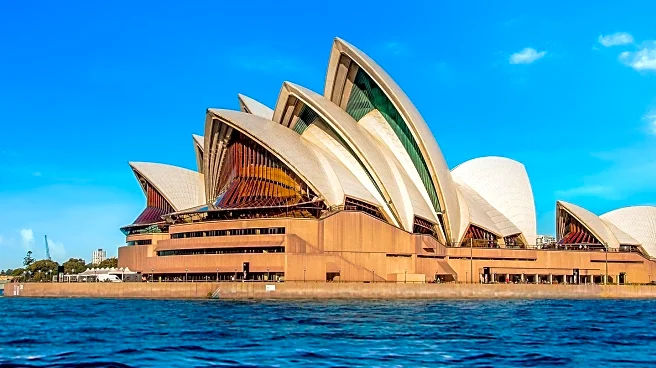What's Happening?
Wendy Wu Tours has released its inaugural annual report, 'The Journey Ahead,' which reveals a significant shift in Australian travel preferences towards slow and immersive experiences. The report highlights
a growing trend among Australians, particularly those over 55, who are moving away from traditional 'tick-box tourism' in favor of longer stays, small group tours, and cultural immersion. Japan remains a top destination, with travelers increasingly exploring beyond major cities like Tokyo and Kyoto. The report also notes a rise in solo travel, driven by desires for personal growth and cultural immersion, and an increase in multi-generational trips aimed at creating shared memories.
Why It's Important?
The shift towards slow travel reflects broader changes in consumer behavior, emphasizing quality and meaningful experiences over quantity. This trend could impact the travel industry by increasing demand for personalized and culturally rich travel packages. Businesses catering to this market may benefit from offering unique, expert-led experiences that appeal to travelers seeking deeper connections with their destinations. The focus on slow travel also aligns with sustainable tourism practices, potentially reducing the environmental impact of travel and promoting local economies.
What's Next?
Travel companies may need to adapt their offerings to cater to the growing demand for slow travel experiences. This could involve developing new itineraries that emphasize cultural immersion and off-the-beaten-path destinations. Additionally, the rise in solo and multi-generational travel suggests a need for flexible and diverse travel options that accommodate different group sizes and interests. As the trend continues, industry stakeholders might explore partnerships with local communities to enhance the authenticity and appeal of their travel packages.
Beyond the Headlines
The trend towards slow travel may have cultural implications, encouraging travelers to engage more deeply with the places they visit and fostering cross-cultural understanding. It also raises ethical considerations regarding the impact of tourism on local communities and environments, prompting discussions about responsible travel practices. As travelers seek more meaningful experiences, there may be a shift in how destinations market themselves, focusing on their unique cultural and natural attributes.









